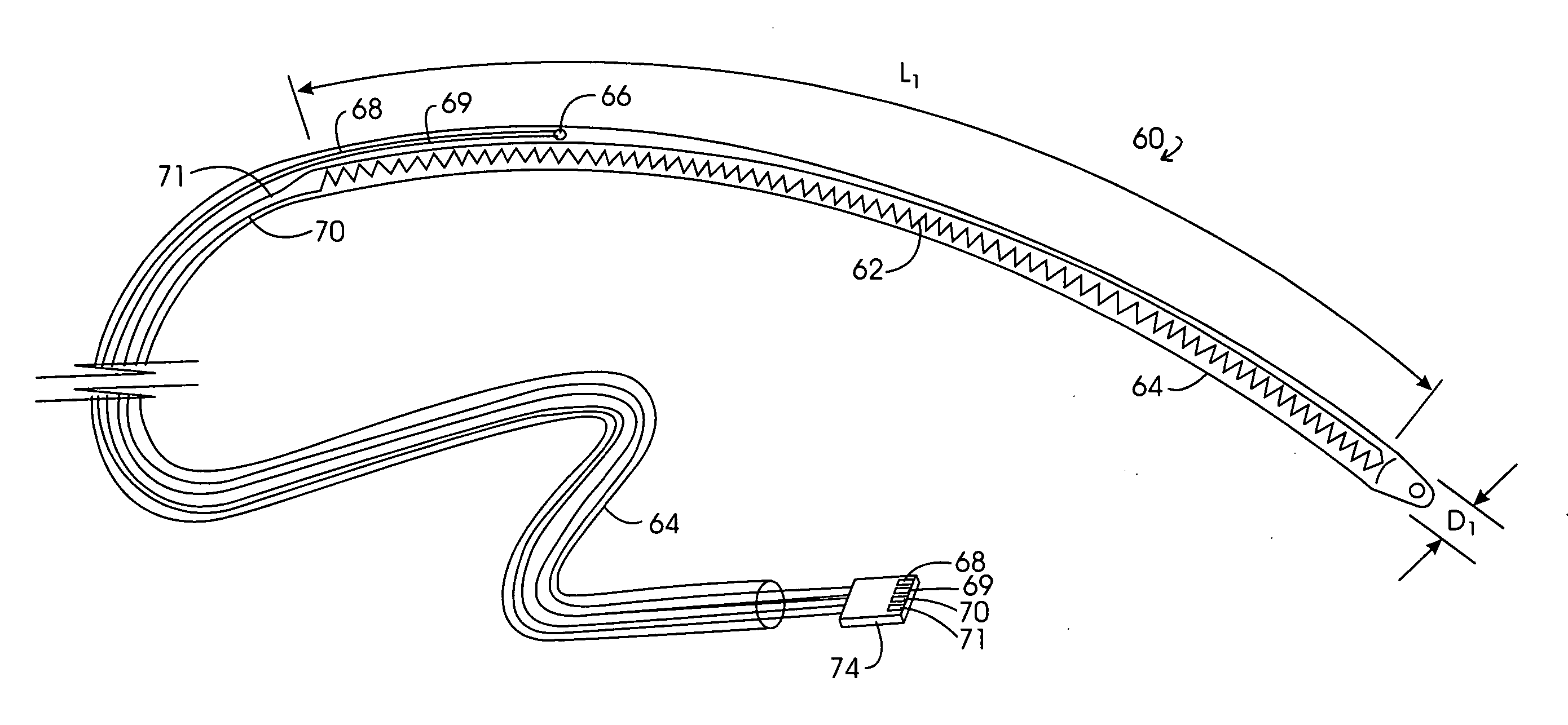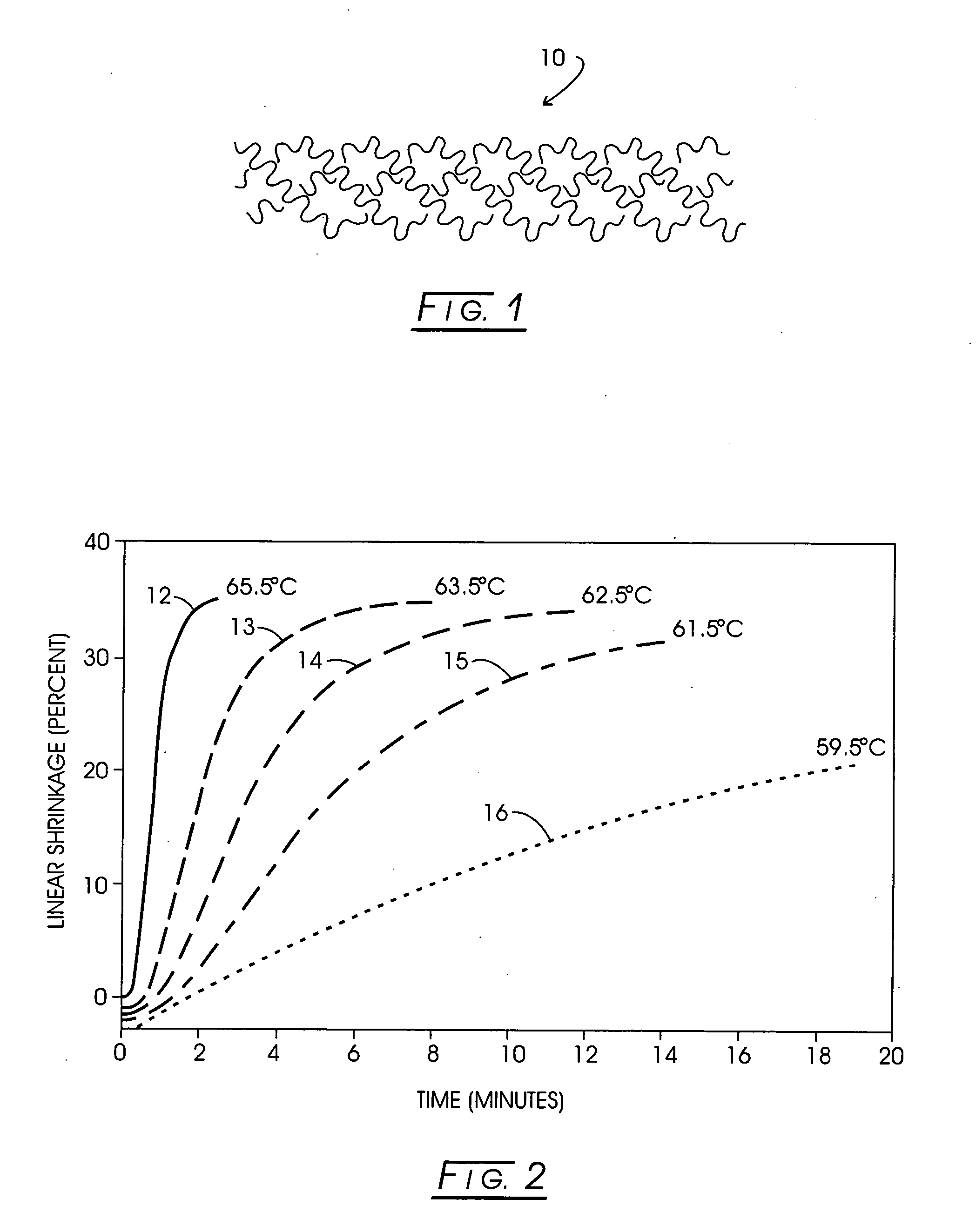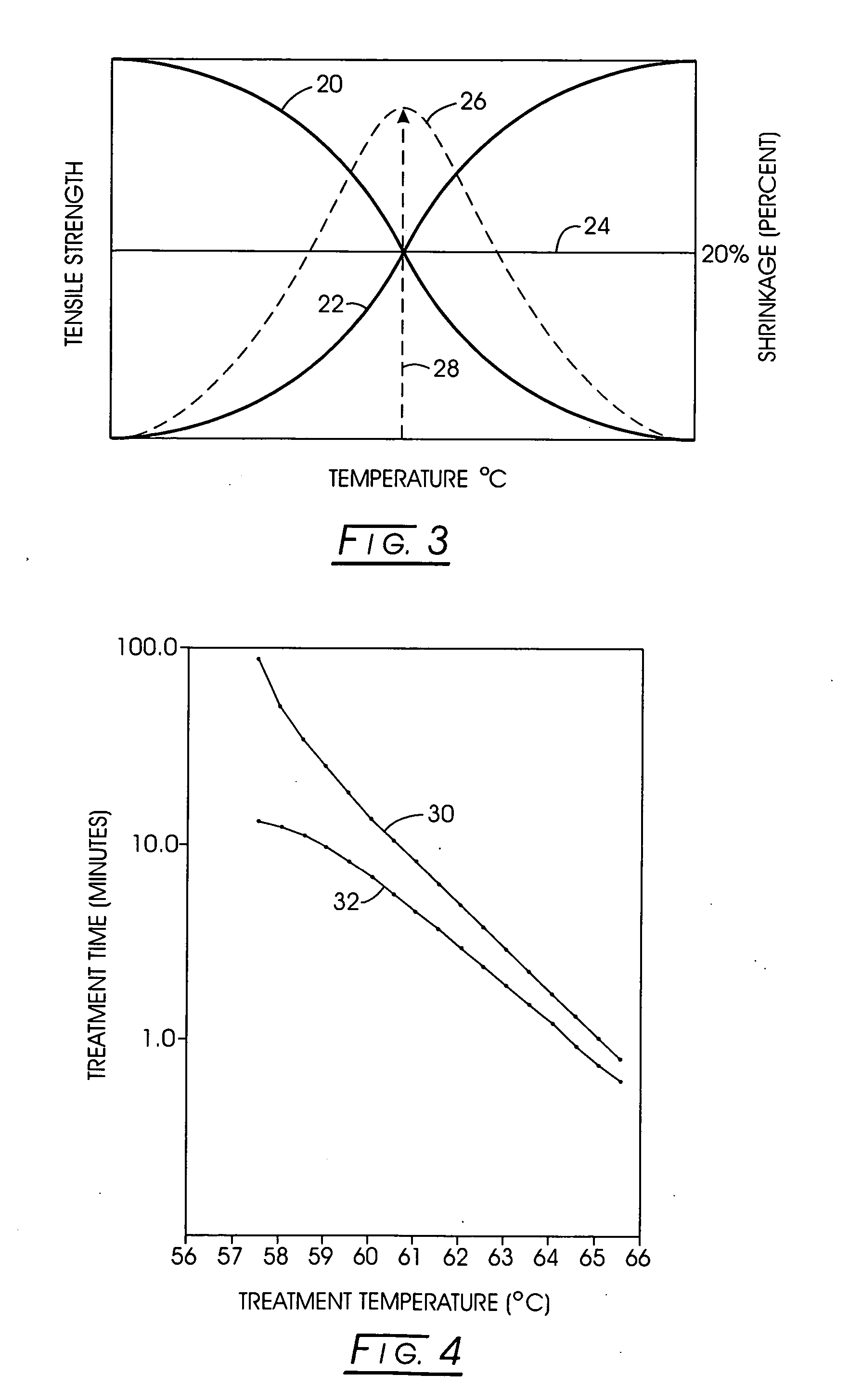Aesthetic thermal sculpting of skin
a technology of thermal sculpting and dermis, applied in the field of aesthetic thermal sculpting of skin, can solve the problems of skin that may require 4-6 months or more of healing, limited efficacy of techniques, and patients who typically experienced significant side effects, and achieve accurate control of dermis heating
- Summary
- Abstract
- Description
- Claims
- Application Information
AI Technical Summary
Benefits of technology
Problems solved by technology
Method used
Image
Examples
Embodiment Construction
[0115] The secondary structure of collagen is that of an α-helix. A basic tropocollagen is a structure consisting of three polypeptide (procollagen) chains coiled around each other to form a spiral in which the individual collagen molecules are held in an extended conformation (see publication 1 supra at pp 63-66). Molecular forces stabilizing the extended conformation consist of hydrogen bonds, salt links and covalent cross-links. Looking to FIG. 1, a schematic representation of tropocollagen is represented generally at 10. Such tropocollagen is aggregated in parallel form to form collagen fibrils.
[0116] Experimental studies have reported that collagen shrinkage is, in fact, dependent upon the thermal dose (i.e., combination of time and temperature) in a quantifiable manner. Looking to FIG. 2, a plot of linear shrinkage versus time for various constant temperatures is revealed in association with plots or lines 12-16. For instance, at line 14, linear shrinkage is seen to be about ...
PUM
 Login to View More
Login to View More Abstract
Description
Claims
Application Information
 Login to View More
Login to View More - R&D
- Intellectual Property
- Life Sciences
- Materials
- Tech Scout
- Unparalleled Data Quality
- Higher Quality Content
- 60% Fewer Hallucinations
Browse by: Latest US Patents, China's latest patents, Technical Efficacy Thesaurus, Application Domain, Technology Topic, Popular Technical Reports.
© 2025 PatSnap. All rights reserved.Legal|Privacy policy|Modern Slavery Act Transparency Statement|Sitemap|About US| Contact US: help@patsnap.com



